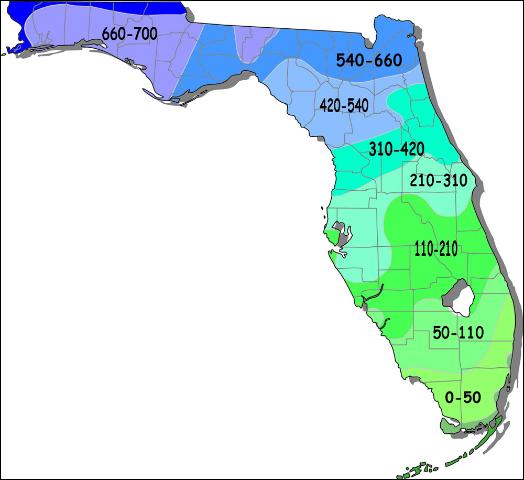We may be suffering from the recent low temperatures, but temperate fruit trees such as peaches and apples require a period of cold weather in order to become cold hardy and produce a good crop.
What is Cold Hardiness?
Cold hardiness is the ability of a plant to survive low temperatures. However, every cold event is fairly unique with variables such as when the low temperatures occur (early vs. late winter), how quickly the temperature drops, the temperatures in the days leading up to the event, and the length of time the low temperatures are sustained.
Cold Acclimation
Cold acclimation is the development of freezing tolerance in plants. Three fall environmental factors contribute to cold acclimation in fruit trees. Plant will develop 10 to 15 degrees of cold tolerance when the leaves sense shorter day lengths. Metabolic activity is increased when days are short and temperatures are between 60°F days and 40°F nights. The second factor occurs when lows reach the 20s, which can make trees up to 10 degrees hardier. The final factor occurs when temperatures dip to near zero, which fortunately for us does not occur very often.
Trees remain hardy during the winter as long as temperatures remain fairly stable. However, de-acclimation occurs in reaction to warm temperatures. This explains the winter flowering which occurred this past December. A cold snap may not injure trees unless it immediately follows a period of mild temperatures.
Chilling Requirement
The cold weather and gradual cold acclimation are necessary to a tree’s accumulation of chill hours which is necessary for steady fruit yields. Chill hours are the accumulation of hours when temperatures are between 32°F and 45°F. The yearly average chill hour accumulation in Northwest Florida is between 660 and 700 hours. The apple varieties recommended for our area (‘Anna’, ‘Dorsett Golden’, and ‘TropicSweet’) have a chilling requirement of 250 to 300 hours. Some of the peach varieties recommended for our area (‘Flordacreast’, ‘Flordaking’, and ‘Gulfsnow’) have a chilling requirement of 350 to 400 hours. Please note the risk of planting these varieties because their chilling requirements are lower than our average chill hour accumulation. The varieties listed are for example, but other available varieties are suitable for our area.
Whether you like winter weather or not, just remember the satisfaction of eating fresh fruit in the summer. To track this year’s chill hours from the warmth of your home, please visit the AgroClimate tool at http://agroclimate.org/tools/Chill-Hours-Calculator/.
- Is a Limequat a Lime or a Kumquat? - December 26, 2025
- Gardening in the Panhandle LIVE! Program Summary: Pests of Florida Lawns and Landscape Plants - May 28, 2025
- Fun Facts About Ferns - April 30, 2025

